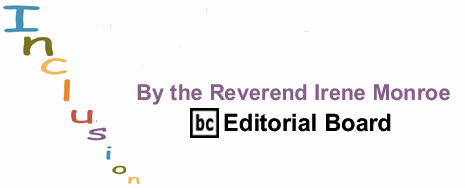
Was There a Politically
Correct Way
For Tarantino to Portray Black Slavery?

2013 is
making it difficult to avoid one of
One
blockbuster hit that’s playing in cinemas now, and is likely to walk
away with
several Golden Globes and Oscars, is Quentin Tarantino’s Django
Unchained.
Django Unchained depicts a
slave-turned-bounty hunter (Jamie Foxx) who
fearlessly treks across the
The film is
classic Tarantino, this time a homage to
the spaghetti
western with romance and revenge narrative. Tarantino set the story in
the most
unlikely of places -
Tarantino is
known as the “King of Carnage,” and his films’ aestheticized
depictions of violence (which he calls “movie violence”) is both
cruelly
disturbing yet undeniably entertaining. In giving his view of Django Unchained, New York
Times film
critic, A. O. Scott, wrote, ”A troubling and important movie about
slavery and
racism...Like Inglourious Basterds, Django
Unchained is crazily entertaining, brazenly irresponsible and also
ethically serious in a way that is entirely consistent with its
playfulness.”
It is
Tarantino’s playfulness, set in the troubling historical environment,
that is still unsettling many Americans. Leave it to Tarantino -
he’s
challenged us to ask a number of difficult questions:
Is it
politically incorrect to depict American slavery in a
playfully entertaining way?
Is there a
politically correct way to depict American slavery?
While some
will contest that Tarantino is being, well, Tarantino, and he means no
disrespect, others argue that his privilege as a well-respected
moneymaking
white heterosexual male filmmaker gives him carte blanche to recklessly
express
his creative juices even if it reinscribes
stereotypes that many feel Django
does.
But
Tarantino pushes his critics back, stating his objective in making Django is to stir a conversation about
slavery
because
“It’s one
thing to write on the page, ‘Cotton field in the background while two
white
characters are drinking lemonade, 100 slaves picking cotton in the
background,’”
Tarantino told Nightline. “It’s
another thing to plant that cotton and put 100 black folks in slave
costumes
broiling under the hot sun picking cotton. That can get to your soul a
little
bit.”
In many
African American communities, Tarantino’s film got to their souls, too,
and it
received mixed reviews from a tepid nod to expressions of outrage. And
those
outraged by the film feel Django Unchained
needs to be locked up, bound, buried if not burned because the film
uses the
inhumanity of slavery as a backdrop and it dishonors those who have
suffered
under its reign.
Then there’s
the liberal use of the n-word in the film which many will find
deplorable. When
asked about it, Tarantino told Cynthia McFadden on ABC’s Nightline,
“I don’t think anybody is actually going out there
saying that we used the word more excessively than it was used in 1858
in
But one
critic in particular who won’t shut up about Django
is renown African American filmmaker, Spike Lee, whose gripes
resonate for
many and were recorded in the New York
Times.
I can’t
speak on it ‘cause I’m not gonna’
see it,” Lee said. “The only thing I can say is it’s disrespectful to
my
ancestors, to see that film.” Days later on Twitter he tweeted,
“American
Slavery Was Not A Sergio Leone Spaghetti
Western. It
Was A Holocaust. My Ancestors Are Slaves. Stolen
From
American
slavery continues to be a difficult topic to talk about. And it’s
avoided at all
cost, particularly if not spun to appeal to white audiences.
For example,
the Queen of Daytime talk, Oprah Winfrey, tried to tackle the topic
with her
production of the 1998 film Beloved based
on Toni Morrison’s novel by the
same name. It was a box office failure. The failure is speculated to be
that
the film didn’t appeal to white audiences, casting them in a negative
light.
Some critics contest that the movie was too serious, not entertaining
enough,
and was mind-numbing to both black and white audiences of all ages. The
weekend Beloved opened it was beat out by the horror flick Bride
of Chucky.
The 1977 hit
television series Roots, based on Alex Haley’s novel by the
same name,
was an international success, nominated for 36 Emmys and winning nine.
It was
intentionally written to win over white viewers.
“Familiar
television actors like American (sic) actor Lorne Greene were
chosen for
the white, secondary roles, to reassure audiences. The white actors
were
featured disproportionately in network previews. For the first episode,
the
writers created a conscience-stricken slave captain (Edward Asner),
a figure who did not appear in Haley’s novel but was intended to make
white
audiences feel better about their historical role in the slave trade,”
the
Tarantino’s
creative rendering of it, albeit understandably troublesome, sheds a
disturbing
light on our culture’s ability to willingly sit alone in a dark theater
for two
plus hours watching an entertaining film about American slavery rather
than to
voluntarily sit in a lit room face-to-face with each other and talk
about it.
American slavery is an American story. And we all have ownership of it.
BlackCommentator.com Editorial Board member and Columnist, the Rev. Irene Monroe, is a religion columnist, theologian, and public speaker. She is the Coordinator of the African-American Roundtable of the Center for Lesbian and Gay Studies in Religion and Ministry (CLGS) at the Pacific School of Religion. A native of Brooklyn, Rev. Monroe is a graduate from Wellesley College and Union Theological Seminary at Columbia University, and served as a pastor at an African-American church before coming to Harvard Divinity School for her doctorate as a Ford Fellow. She was recently named to MSNBC’s list of 10 Black Women You Should Know. Reverend Monroe is the author of Let Your Light Shine Like a Rainbow Always: Meditations on Bible Prayers for Not’So’Everyday Moments. As an African-American feminist theologian, she speaks for a sector of society that is frequently invisible. Her website is irenemonroe.com. Click here to contact the Rev. Monroe.






